
Midnight Oil are an Australian rock band composed of Peter Garrett, Rob Hirst (drums), Jim Moginie and Martin Rotsey (guitar). The group was formed in Sydney in 1972 by Hirst, Moginie and original bassist Andrew James as Farm: they enlisted Garrett the following year, changed their name in 1976, and hired Rotsey a year later. Peter Gifford served as bass player from 1980 to 1987, with Bones Hillman then assuming the role until his death in 2020. Midnight Oil have sold over 20 million albums worldwide as of 2021.

American singer-songwriter Bob Dylan has released 40 studio albums, 21 live albums, 17 volumes of The Bootleg Series, 44 compilation albums, seven soundtracks as main contributor, 24 notable extended plays, 104 singles, 61 music videos, 17 music home videos and two non-music home videos. Dylan has been the subject of eleven documentaries, starred in three theatrical films, appeared in an additional thirty-six films, documentaries and home videos, and is the subject of the semi-biographical tribute film I'm Not There. He has written and published lyrics, artwork and memoirs in 11 books and three of his songs have been made into children's books. He has done numerous collaborations, appearances and tribute albums. The albums Planet Waves and Before the Flood were initially released on Asylum Records; reissues of those two and all others were on Columbia Records.

"Cat's in the Cradle" is a folk rock song by American singer-songwriter Harry Chapin, from his fourth studio album, Verities & Balderdash (1974). The single topped the US Billboard Hot 100 in December 1974. As Chapin's only number-one song, it became the best known of his work and a staple for folk rock music. Chapin's recording of the song was nominated for the 1975 Grammy Award for Best Male Pop Vocal Performance and was inducted into the Grammy Hall of Fame in 2011.

"Jump Around" is a song by American hip hop group House of Pain, produced by DJ Muggs of Cypress Hill, who has also covered the song, and was released in May 1992 by Tommy Boy and XL as the first single from their debut album, House of Pain (1992). The song became a hit, reaching number three in the United States. A 1993 re-release of the song in the United Kingdom, where the initial release had been a minor hit, peaked at number eight. Its music video was filmed in New York City, featuring footage from the 1992 Saint Patrick's Day parade.

"I Will Always Love You" is a song written and originally recorded in 1973 by American singer-songwriter Dolly Parton. Written as a farewell to her business partner and mentor Porter Wagoner, expressing Parton's decision to pursue a solo career, the country single was released in 1974. The song was a commercial success for Parton, twice reaching the top spot of the US Billboard Hot Country Songs chart: first in June 1974, then again in October 1982, with a re-recording for The Best Little Whorehouse in Texas soundtrack.

"Tears in Heaven" is a song by English guitarist, singer, and songwriter Eric Clapton and Will Jennings, written about the death of Clapton's four-year-old son, Conor. It appeared on the 1991 Rush film soundtrack. In January 1992, Clapton performed the song in front of an audience at Bray Studios, Berkshire, England for MTV Unplugged, with the recording appearing on his Unplugged album.

"Fever" is a song written by Eddie Cooley and Otis Blackwell, who used the pseudonym "John Davenport". It was originally recorded by American R&B singer Little Willie John for his debut album, Fever (1956), and released as a single in April of the same year. The song topped the Billboard R&B Best Sellers in the US and peaked at number 24 on the Billboard pop chart. It was received positively by music critics and included on several lists of the best songs when it was released.

"If" is a song written by American singer-songwriter David Gates in 1971. Originally popularized by his group Bread, "If" charted at No. 4 on the U.S. Billboard Hot 100 when released as a single in 1971 and No. 6 in Canada. It also spent three weeks at No. 1 on the U.S. Easy Listening chart, and one week at the top of the Canadian AC chart.

"I'm Every Woman" is a song by American singer Chaka Khan, released in September 1978 by Warner Bros. as her debut solo single from her first album, Chaka (1978). It was Khan's first hit outside her recordings with the funk band Rufus. "I'm Every Woman" was produced by Arif Mardin and written by the successful songwriting team Nickolas Ashford and Valerie Simpson. The single established Chaka's career outside the group Rufus, whom she would leave after their eighth studio album, Masterjam, was released in late 1979.
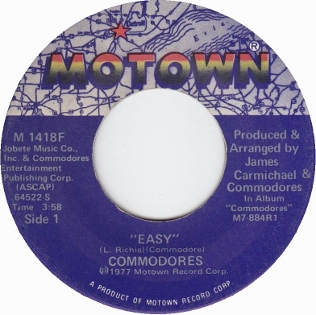
"Easy" is a song by American band Commodores from their fifth studio album, Commodores (1977), released on the Motown label. Group member Lionel Richie wrote "Easy" with the intention of it becoming another crossover hit for the group given the success of a previous single, "Just to Be Close to You", which spent two weeks at number one on the US Billboard Hot Soul Singles chart and peaked at number seven on the Billboard Hot 100 in 1977.
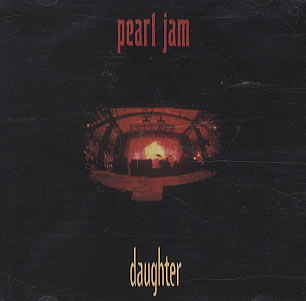
"Daughter" is a song by American rock band Pearl Jam, released in November 1993 by Epic Records as the second single from the band's second studio album, Vs. (1993). The song features lyrics written by vocalist Eddie Vedder and music written by the band's members.

"The Loco-Motion" is a 1962 pop song written by American songwriters Gerry Goffin and Carole King. "The Loco-Motion" was originally written for R&B singer Dee Dee Sharp, but Sharp turned the song down.
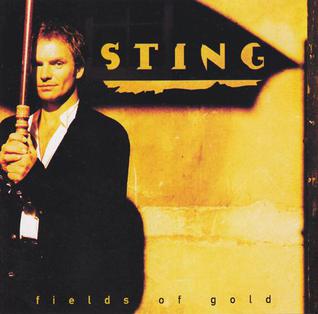
"Fields of Gold" is a song written and performed by English musician Sting. It first appeared on his fourth studio album, Ten Summoner's Tales (1993). The song, co-produced by Sting with Hugh Padgham, was released as a single on 7 June 1993 by A&M Records, reaching No. 16 on the UK Singles Chart and No. 23 on the US Billboard Hot 100. The song also reached No. 2 in Canada and No. 6 in Iceland. In 1994, it was awarded one of BMI's Pop Songs Awards. The music video for the song was directed by Kevin Godley, featuring Sting as a gold silhouette.

"I Can See Clearly Now" is a song written and recorded by American singer-songwriter Johnny Nash. It was the lead single from his twelfth album, I Can See Clearly Now (1972), and achieved success in the United States and the United Kingdom when it was released in 1972, reaching number one on the US Billboard Hot 100 and Cash Box charts. It also reached number one in Canada and South Africa. The song has been covered by many artists throughout the years, including a hit version by Lee Towers that reached no. 19 in the Dutch Top 40 in 1982, and another recorded by Jimmy Cliff for the motion picture soundtrack of Cool Runnings that peaked at no. 18 on the US Billboard Hot 100 in 1993.
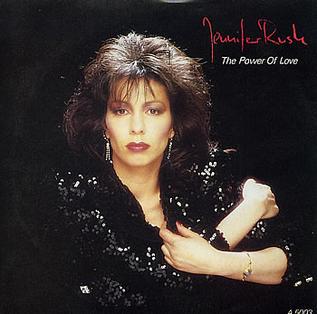
"The Power of Love" is a pop song co-written and originally recorded by American singer-songwriter Jennifer Rush in 1984. It was released in December 1984 by CBS Records as the fifth single from her debut album, Jennifer Rush (1984), and has since been covered by Air Supply, Laura Branigan, and Celine Dion.
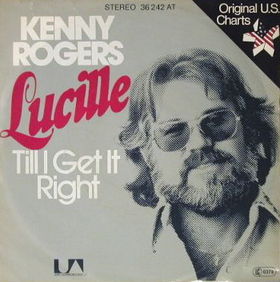
"Lucille" is a song written by Roger Bowling and Hal Bynum, and recorded by American country music artist Kenny Rogers. It was released in January 1977 as the second and final single from the album Kenny Rogers. It became Rogers' first major hit as a solo artist after leaving the successful country/rock group the First Edition the previous year. An international hit, it reached number one on the Billboard Country Singles chart and number 5 on the Billboard Hot 100. Overseas, "Lucille" reached the top of the UK Singles Chart in June 1977, the first of Rogers' two number one singles there.
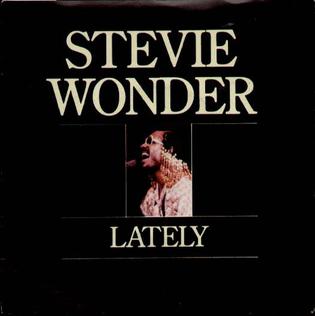
"Lately" is a song by American singer, songwriter and musician Stevie Wonder, recorded for his nineteenth studio album, Hotter than July (1980). The song was released in 1981 by Tamla, reaching number 3 on the UK Singles Chart and number 64 on the US Billboard Hot 100. It was later covered by American R&B group Jodeci and released as a promotional single for the live album Uptown MTV Unplugged in June 1993, which reached number one on the Billboard R&B chart and the top-5 on the Billboard Hot 100.
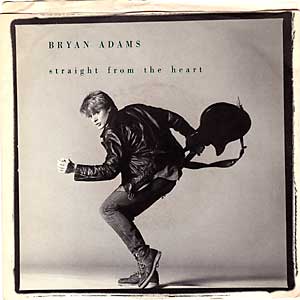
"Straight from the Heart" is a song recorded by Canadian rock musician Bryan Adams. It was released in 1983 as the lead single from his third studio album, Cuts Like a Knife.

"Where Is the Love" is a popular song written by Ralph MacDonald and William Salter, and recorded by Roberta Flack and Donny Hathaway. Released in 1972 from their album, Roberta Flack & Donny Hathaway. It peaked at number five on the Billboard Hot 100 singles chart and spent a week each at number one on the Billboard Easy Listening chart and R&B chart. Billboard ranked it as the No. 58 song for 1972. The song won a Grammy Award for Best Pop Performance by a Duo or Group with Vocals.

"Just Like Fire Would" is a song by Australian alternative rock band, the Saints, which is written by the band's lead singer, Chris Bailey, and was released as a single in March 1986. It was the lead single from their seventh studio album, All Fools Day, and peaked at No. 29 on the Kent Music Report Singles Chart. It was produced by Hugh Jones, who had co-produced the album with Bailey. AllMusic's John Dougan reviewed All Fools Day and opined, "One listen to songs as grabbing as 'Celtic Ballad' or the great 'Just Like Fire Would' will convince you that despite the differences, the new Saints were a good band for completely different reasons than the old Saints."




















